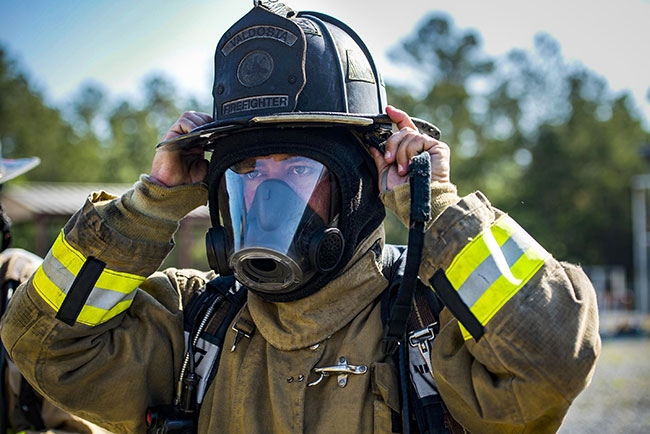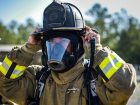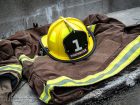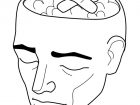
Features
Health and wellness
Hot topics
Scars vs. Scabs: The differences between PTSD and other mental health issues
I remember my first significant call. We all do. Or, well, pieces of it. It’s like rummaging through an old pile of photos out of sequence. I don’t remember which month it was, but I remember that the air was cold. The call came into the station; someone was hit by a train. As we raced to the scene, my mind raced through those same thoughts that many first responders have. I wondered what I was about to see. Will there be blood and gore? Am I cut out for this?
November 22, 2017
By Nick Halmasy
 Firefighters regularly respond to stressful or traumatic calls Firefighters often respond to traumatic calls
Firefighters regularly respond to stressful or traumatic calls Firefighters often respond to traumatic callsI vividly remember the cold steel of the train.
We arrived on scene, and one truck was already there. I remember the provincial police; the medics; the student; the conductor; the body. I remember all of this, from what I felt, to the black humour we used to help us cope with the emotionally daunting situation. I remember many things about this call and clips that play in my head about the things I saw. It has been so long since the incident that my mind has likely filled what I don’t remember with things that I believe happened. Confusing, right?
When I drive over train tracks, I always scan along the rails as I pass. I often believe I will see that train again, but simultaneously, I believe that it is irrational to think the train would be there. Of course, it never is.
According to an article published in the British Journal of Psychiatry, Canada has one of the highest lifetime prevalence rates of post-traumatic stress disorder (PTSD) globally. In 2008, researchers from McMaster University in Hamilton, Ont., found that 9.2 per cent of Canada’s total population will develop the disorder in their lifetime. The study found that whopping 76.1 per cent of the nearly 3, 000 participants interviewed had a traumatic experience that meets the criteria for events that are likely to cause PTSD. In the study’s abstract, lead author Michael Van Ameringen indicates his surprise at the high rates of PTSD in this country. “The results are surprising, given the comparably low rates of violent crime, a small military, and few natural disasters,” he wrote.
In comparison, America’s lifetime prevalence rate is 6.8 per cent, with 79.4 per cent of respondents reporting traumatic exposure.
The reality is that Ontario’s Workplace Safety and Insurance Board now covers PTSD, but it does not cover the larger scope of mental wellness challenges. I believe this is why more people are being diagnosed with PTSD; they are being diagnosed where there is coverage.
We can’t ignore the fact that PTSD is becoming more and more “sexy”. By this, it’s a hot topic, both among first responders and the wider public. A quick Google search of therapists in your local area will show that a surprising number of them list “trauma” as a specialty in their toolbox. In my experience, this is the number one reason that first responders initially reach out to me. I believe misunderstandings about the nature of PTSD and any resulting diagnoses need to be addressed, in order to give PTSD patients the full respect they deserve.
I spend a considerable chunk of my time with fire departments, debunking the myth that PTSD is the only mental health affliction that first responders can develop. In order to understand the disorder, they must understand the diagnosis. Many people might be surprised to hear that, diagnostically speaking, a patient needs to experience more than one symptom of PTSD for 30 days to be diagnosed (according to the Diagnostic and Statistical Manual (DSM-5). These symptoms need to be present for a prolonged period of time. Not just immediately following the call. Not just a few days later.
According to the Centre for Addiction and Mental Health, a person with PTSD may exhibit these symptoms, among others:
- Re-experiencing the traumatic event
- Recurring nightmares
- Unwanted, disturbing memories of the event
- Acting or feeling like the event is happening again
- Avoiding activities, places, people that remind them of the experience
- Avoiding friends, family, and activities they used to enjoy
- Becoming easily angered
- Concentration issues
- Difficulties falling asleep
- Constant worrying
- Constant fear
All those scary symptoms have become such trigger point topics (e.g. nightmares, irritability, sleeplessness, depressive moods, anxiety) are actually normal reactions to stress. Experiencing these shortly after a difficult call is a normal physiological reaction that should not be grouped immediately under the PTSD category.
Immediately jumping on the PTSD label has the potential to scare people and pathologize stress.
One aspect of PTSD diagnosis is this idea of the flashback. I work in the mental wellness field and I understand what a flashback is, but during recent discussions with first responders, I realized that many may not fully understand what a flashback means to them.
There is a difference between a flashback and a disturbing memory.
For my talks I liken a flashback to a “living hallucination.” I explain that, for the person experiencing a flashback, it feels as if they are literally back at the scene, in every possible way. They hear, smell, and see what occurred during that traumatic experience. They relive it. I can’t stress enough the severity of such a symptom. A flashback goes well past the upsetting feelings that we might experience when remembering a particularly uncomfortable call. These feelings indicate a disturbing memory, not a flashback. The person may be thinking about the incident, but they do not physically feel it.
I opened with my story about the train response. I am neither diagnosed with PTSD, nor any other stress-related disorder. For all I know, I am mentally healthy, despite my decade of service. So, I see my memories of that traumatic call as a scar; a mark left from an event that impacted me. Every person has them, scars that develop as life events leave their mark, each one representing a story. Some of these scars mark stories of good experiences, some scars, not so much.
But, for every scar we have, we can likely recall the event that caused it. Most times, we can recall the event with a normal level of emotional arousal. Usually, I don’t get too upset when thinking about that call. It is a scar, a story. It was an event that impacted me, and will always be present, but it is just a memory. It has healed and no longer hurts. I can recall it, with little difficulty, and I am OK when I do.
Scabs, however, are something completely different.
A scab is an injury that has not yet healed; one that will cause pain or discomfort if touched. If it is bumped, scratched, or hit there will be pain and possibly bleeding. The wound only has a thin layer of skin protecting it. The memories that created these scabs are still very raw. I would fully expect an emotional reaction when someone recalls a memory that falls into this category.
The reactions connected with scabs could include flashbacks. A gentle bump or touch could violently launch you right back to the moment that injury occurred. Now, as a clinician, when a person is experiencing a flashback there are a variety of appearances to a flashback. People may look “disengaged” (a sign of dissociation, or a disconnection from the present) to complete emotional dysregulation (emotional outbursts that don’t suit the present setting or topic of conversation). A flashback can cause someone to lose track of where they are. The person may be physically present, but mentally, they have checked out. In that moment, they may be experiencing the moment of injury all over again.
Pick the scab, and it bleeds.
In an effort to help re-inject the gravity of what a PTSD diagnosis does to a person, I’ve tried here to convey in words and completely experiential moment. A first responder with PTSD cannot easily shake away a memory of a traumatic call, despite wanting to forget. PTSD is not the occasional nightmare about a call or other stressful event that has impacted you. Instead, PTSD is the mental reliving of all the hellish pieces of the event(s).
It is normal to experience nightmares, irritability, trouble sleeping, and fixation on the call among other symptoms, for a few days following the event. The brain is trying to make sense of something that is difficult to process, collect or organize. But, these symptoms are part of the normal cognitive process to understand and sort the event mentally and emotionally. I experienced these symptoms following the train event – though, at the time I had no idea that my reaction was normal.
First responders have careers full of trauma. That is, the primary function of our jobs has us directly responding to traumatic events – it’s part of job description. But, there are ways to prevent a career marked by trauma: sessions with a therapist, chaplain, or other mental-wellness practitioner, regular exercise, taking breaks, and regular self-care to ensure mental well-being. The mind and body are connected and being fit physically will help us to be healthy mentally.
First responders need to understand and normalize the fact that we all will carry the scars of the job, but this isn’t to say that we all have some form of PTSD or mental health issue. Using PTSD as a catch-all for mental struggles is impossible to substantiate, and clinically irresponsible. To be clear, there will be calls that keep you up at night, calls that will impact you. It is completely normal if you are affected for a short while. But first responders must get help when needed, especially when symptoms last for 30 days or more.
You will undoubtedly walk away from this career with scars. To minimize the mark of trauma, we must understand and respect PTSD, among other mental wellness issues. Take care of your mind and your body. Take the necessary steps to promote your personal healing process, allowing wounds to repair themselves, letting scabs become scars over time.
Nick Halmasy is a registered psychotherapist (qualifying) who spent a decade in the fire service. He is the founder of After the Call, an organization that provides first-responders with mental-health information. Contact him at nhalmasy@afterthecall.org.
Print this page
Advertisement
- Back to Basics: Tips for proper ground ladder use
- Stopbad: Great firefighters are constantly improving


